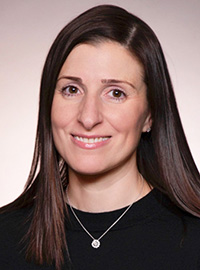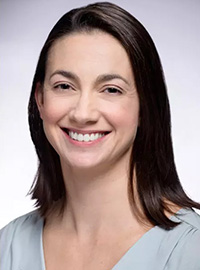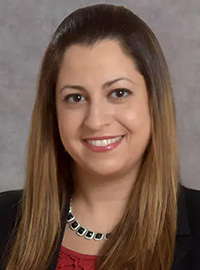Short bowel syndrome is a rare and debilitating disease, characterized by symptoms of malabsorption that can lead to malnutrition, which often occurs after extensive bowel resections. Treatment usually begins with the planning of the initial surgery, especially for diseases that may need multiple interventions. Patients with short bowel syndrome require individualized management as each patient differs in diagnosis, length and function of remaining bowel, nutritional tolerance, and psychosocial needs. For all of these reasons, a multidisciplinary approach allows for the fully integrated surgical, medical, nutritional, and psychosocial management of patients with short bowel syndrome and intestinal failure..
The Pediatric Intestinal Rehabilitation Center at NewYork-Presbyterian Morgan Stanley Children’s Hospital calls on a range of specialists in pediatric gastroenterology, hepatology, surgery, infectious disease, neonatology, nutrition, feeding and occupational therapy, radiology, pathology, and social work to manage the care of children transitioning out of the neonatal intensive care unit or who have been referred to the program by their clinician.

Dr. Erica Fallon

Dr. Elizabeth Berg

Dr. Sivan Kinberg
Sivan Kinberg, MD, MS, MA, is a pediatric gastroenterologist in the Division of Pediatric Gastroenterology, Hepatology, and Nutrition and Director of the Pediatric Intestinal Rehabilitation Center. The Center’s Associate Director, Elizabeth Nofi Berg, MD, is a pediatric gastroenterologist with primary clinical interests in intestinal failure, short bowel syndrome, and home parenteral nutrition. Dr. Kinberg, Assistant Professor of Pediatrics, and Dr. Berg, Assistant Professor of Pediatrics, work closely with Erica M. Fallon, MD, Director of Pediatric Surgical Oncology and Assistant Professor of Surgery at Columbia. Dr. Fallon has particular expertise in neonatal and congenital diseases, including gastrointestinal disorders with a focus on short bowel syndrome.
“We are saving these children. Mortality and morbidity have greatly improved, and we are able as pediatricians to watch these children grow, thrive, and succeed.” – Dr. Sivan Kinberg
“We follow around 120 patients who have short bowel syndrome and intestinal failure and about 50 patients who are dependent on home parenteral nutrition,” says Dr. Kinberg, who established the Pediatric Intestinal Rehabilitation Center in 2015 nearing the end of her fellowship training in pediatric gastroenterology at Columbia. “Our intent was to build a center where children could receive care from multiple specialists – all in one place. There is evidence that patients with this disease who are cared for by a multidisciplinary team in one location have improved outcomes.”
“The pathophysiology of this disease offers many opportunities for improving the lives of our patients,” says Dr. Berg. “Many of these children are born premature and tend to have developmental delays and needs that we are able to support. The majority have intestinal failure that requires rehabilitation to help them hopefully become enterally independent, either able to eat by mouth or be fed through an alternative feeding device (i.e., gastrostomy tube). Within the umbrella of intestinal failure are children who have short bowel syndrome, usually due to necrotizing enterocolitis.”
Other causes of intestinal failure include:
- congenital intestinal atresia
- congenital diarrheal disorders
- gastroschisis
- volvulus
- motility disorders
- Hirschsprung disease
“Some children have had trauma, such as a motor vehicle collision, that damages their intestines,” says Dr. Berg. “After the initial surgery and treatment to stabilize the patient, then that’s the opportunity for the medical team to say, ‘What’s the best course of treatment for this patient?’ Oftentimes we are looking at future surgeries and that’s where Dr. Fallon comes in – her training is focused on very intricate procedures.”
“It’s essential to have a multidisciplinary team in the care of these complex cases,” says Dr. Fallon. “Surgical expertise is one component. But evidence-based literature has shown that the care of these patients mandates a center that has this capability and experience. As a surgeon, I work closely with and rely on each team member to assist in the care of these patients.”
During Dr. Fallon’s research fellowship, in which she focused on short bowel syndrome, she participated in the compassionate use trial of Omegaven, a fish oil lipid intravenous emulsion for use as a source of calories and fatty acids for pediatric patients with parenteral nutrition-associated cholestasis. “Now FDA approved in children, Omegaven is a component of the total parenteral nutrition [TPN] that these patients need to sustain their growth while working to establish enteral tolerance. That research prompted my interest in this field,” says Dr. Fallon.
Patients are often referred to the Pediatric Intestinal Rehabilitation Center from the hospital’s Neonatal Intensive Care Unit. “After surgery, either Dr. Fallon or one of her surgical colleagues will immediately let us know that the patient had an operation resulting in short bowel syndrome and our team gets involved from the beginning,” says Dr. Kinberg. “We meet with the family to discuss the diagnosis in conjunction with the NICU team. Patients are followed closely and then are prepared either for transfer to an inpatient unit, to a rehabilitation facility, or discharged home. We have established referral relationships with local community organizations and are also referred patients from other countries. Patients with a congenital disorder resulting in intestinal failure can be sent for intensive intestinal rehabilitation prior to an intestinal transplant here.”
“Surgical expertise is one component. But evidence-based literature has shown that the care of these patients mandates a center that has this capability and experience. As a surgeon, I work closely with and rely on each team member to assist in the care of these patients.” – Dr. Erica Fallon
“Discharge depends entirely on the etiology though and oftentimes the length of remaining intestine,” says Dr. Fallon. “When possible, we do consider potentially discharging patients from our program if they establish enteral tolerance and do not have any vitamin or mineral deficiencies, it may be that they don’t need us anymore, and that’s great. But the majority of the patients do require some form of continuity of care and follow-up.”
Dr. Berg agrees on the importance of having an intestinal rehabilitation center linked to an intestinal transplant service. “Our intestinal and liver transplant program here at Columbia is very strong,” she says. “Because we work so closely with our transplant hepatology colleagues, including Dr. Mercedes Martinez, transplant hepatologist and Medical Director of Pediatric Intestinal Transplant, we have been able to save many children from needing transplants. They come thinking they might need a transplant and instead they learn that there’s more that can be done to avoid or delay transplant. We have nutritional advances that include highly skilled TPN management and specialized lipid emulsions to protect and heal the liver. We have a team of specialized pediatric dietitians who manage patients when they’re in the hospital and first begin treatment with TPN and then care for these children through our outpatient program.”
“We’re learning from each other, we’re learning from other institutions, and we’re learning from the parents, first and foremost. When you talk about where are the innovations coming from? I think they’re coming from the parents next.” – Dr. Elizabeth Berg
“For most of these children, TPN is their lifeline, and so having an interventional radiologist with expertise in placing these central lines is critical,” continues Dr. Berg. “We’re very fortunate to have experienced pediatric surgeons and Dr. Sheryl Tulin-Silver and other interventional radiologists who are able to place central lines into tiny babies and into tiny little blood vessels, when no one else can. Sometimes we receive a baby who has inadequate access to deliver this lifesaving nutrition. We can place a line that allows them to receive nutrition and to adjust their TPN recipes in order to protect their livers and prevent them from needing a liver transplant in the future.”
At the Forefront of Intestinal Rehabilitation
The Center uses two forms of lipid formulations in TPN – SMOFlipid and Omegaven. “Prior to SMOFlipid becoming FDA approved in children in 2022, we were using it in our pediatric patients with intestinal failure off label for several years,” says Dr. Kinberg. “We also had a compassionate use protocol for Omegaven for several years before it became FDA approved for children in 2018. The FDA finally approved both SMOFlipid and Omegaven in pediatrics and that has greatly changed our practice. We’ve also been using an intestinal growth hormone, teduglutide, an analog of a naturally occurring intestinal growth hormone GLP-2 that children with short bowel syndrome are often deficient in. We have seen great advancements in intestinal rehabilitation with the use of teduglutide and being able to wean these children off of TPN and achieve enteral autonomy.”
“We are continually trying to advance the field with innovations of our own,” says Dr. Kinberg. “For example, just prior to the pandemic, there was and still is a shortage of ethanol locks, a solution that is placed in the central line catheter to prevent or treat a line infection. We found a workaround by contacting a local compounding pharmacy that was able to make ethanol lock solutions in a sterile way. We’ve since shared this information and now other centers in the region are going to this pharmacy for their supply.”
According to Dr. Fallon, research is underway to develop potential new surgical techniques in bowel lengthening. “We may be able to lengthen the intestine surgically, whether it be dividing it, stretching it, or in combination with pharmacotherapy,” she says. “However, it’s important to note that many of these diagnoses are congenital and need surgical attention shortly following birth. It’s unpredictable how much intestine each patient is going to have and what needs to be done, so the management is very much individualized to each patient.”
Dr. Kinberg and her team are currently developing the GUTSY Clinic, a healthcare transition program for adolescents and young adults with short bowel syndrome and intestinal failure – the first of its kind in the country. “It starts with education around age 12, providing them with self-management skills and empowering them to become independent adults,” she says. “There is a big disconnect between how we practice in pediatrics and how the adult world functions. We’re very much focused on multidisciplinary care and offering psychosocial support to these children and their families. In the adult environment, patients might not find a center that can provide them with that comprehensive and holistic care. Many times these children don’t have the emotional maturity to function independently and they can get lost to follow-up. We are working so hard to save these kids and we want them to lead healthy, meaningful, and productive adult lives.”
“While we often focus on the complications of this disease and how challenging this patient population is, it's also extremely rewarding,” adds Dr. Kinberg. “We are saving these children. Mortality and morbidity have greatly improved, and we are able as pediatricians to watch these children grow, thrive, and succeed. I’ve been at Columbia for over a decade and have taken care of some of these kids since they were very young. Watching them grow up, mature and become more independent in their care – it's just such a joy to work with these patients and their families and to play a part in making their lives better.”



